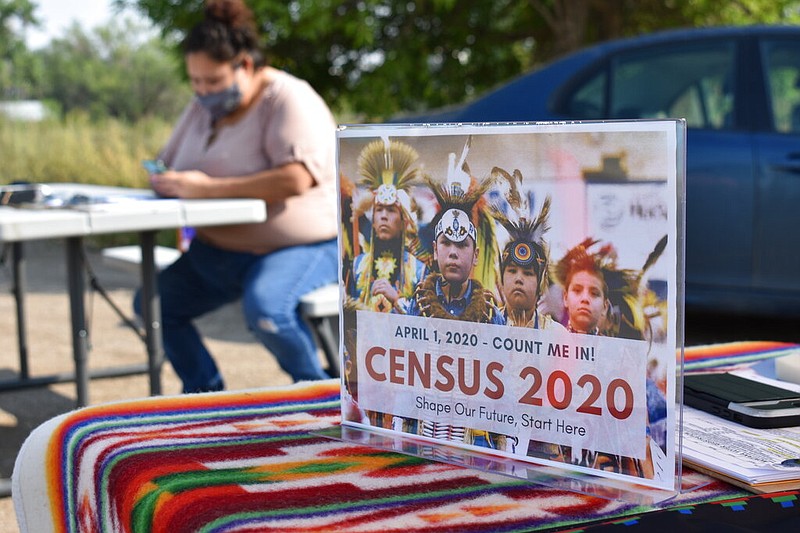ORLANDO, Fla. — The U.S. Census Bureau could meet a year-end deadline for turning in numbers used for deciding how many congressional seats each state gets, if it wasn't for a federal judge's order extending the 2020 census for another month, Trump administration attorneys told appellate judges in court documents.
A three-judge panel on the Ninth Circuit Court of Appeals in San Francisco is hearing arguments Monday on the administration's efforts to overturn U.S. District Judge Lucy Koh's preliminary injunction.
Koh's injunction last month suspended a Sept. 30 deadline for ending the head count as well as a Dec. 31 deadline for turning in the numbers used to determine how many congressional seats each state gets, in a process known as apportionment. Her order reverted the deadlines to those of a Census Bureau plan, announced in April in response to the pandemic, that would end field operations on Oct. 31 and report apportionment numbers at the end of April 2021.
The judge sided with civil rights groups and local governments that had sued the Census Bureau and the U.S. Department of Commerce, arguing that minorities and others in hard-to-count communities would be missed if the counting ended in September.
The Trump administration lawyers said judge's decision ignores a congressionally-mandated deadline requiring the Census Bureau to turn in apportionment numbers by Dec. 31. They also said the local governments and civil rights groups failed to show that accuracy will be compromised if the 2020 census ends early enough for the data to be analyzed before the end of the year.
Koh also struck down an Oct. 5 end date that the Commerce Department had pushed after the injunction, saying it violated her order. A previous appellate panel had refused to suspend the order.
"If the government is required to maintain census field operations until October 31, it will be impossible to meet the December 31 reporting deadline without seriously compromising the data processing that further ensures census accuracy—a deadline that record evidence demonstrates the Bureau otherwise anticipates being able to meet, contrary to plaintiffs' suggestion," the Trump administration attorneys said.
The once-a-decade census determines how $1.5 trillion in federal spending is distributed annually, as well as how many congressional seats and Electoral College votes each state gets. The Census Bureau reported that, as of Saturday, 99.4% of households nationwide have been counted, although nine mostly southern states haven't crossed the 99% threshold yet.
The coalition of civil rights groups and local governments said in documents with the appellate court that if the judge's order is suspended it will result in an incomplete and inaccurate count.
"Defendants want to stop the 2020 Census count immediately," the plaintiffs said. "They do so despite the decade-long harm this will inflict on Plaintiffs and the public who rely on quality census data for apportionment, redistricting, federal funding, and much more."
In response to the pandemic, the Census Bureau in April proposed extending the deadline for finishing the count from the end of July to the end of October and pushing the apportionment deadline from Dec. 31 to next April. The proposal to extend the apportionment deadline passed the Democratic-controlled House, but the Republican-controlled Senate didn't take up the request. Then, in late July or early August, bureau officials changed the deadline once again to the end of September.
The Republicans' inaction coincided with a memorandum President Donald Trump issued, which was later ruled unlawful by a panel of three district judges in New York, directing the Census Bureau to exclude from the apportionment count people in the country illegally. The Trump administration is appealing that case to the U.S. Supreme Court.
Not extending the deadline would ensure that the numbers-crunching phase of the 2020 census takes place under the Trump administration, no matter who wins the November presidential election.
New documents released over the weekend shows that the Census Bureau incurred almost $1.5 billion in costs from the pandemic, primarily due to a three-month delay in field operations and leaves for temporary workers. The 2020 census is expected to cost more than $15 billion.
